History of Medicine, PhD
School of medicine.
The PhD program in the History of Medicine is part of the broader Program on the History of Science, Medicine, and Technology jointly run by the Department of the History of Medicine (SOM) and the Department of the History of Science and Technology (KSAS).
The work of the PhD program extends over all phases and dimensions of the development of medicine and related sciences, the history of disease, and the historical analysis of related conceptual, cultural, and social problems. Students acquire facility in the methods of historical research and gain a wide acquaintance with the available literature in the history of medicine, science, and related fields of history. Departmental offerings are particularly strong in the history of medicine and science in early modern Europe and the Islamic world; medicine, science, and technology in the United States in the 19th and 20th centuries, including genetics; history of disease and public health; and studies of health and society in Latin America and Africa. The program offers coverage of racism and gender in the history of medicine, how medical and scientific knowledge is created, and medical practices of the body.
Students enter the PhD program with diverse backgrounds including medicine, science, and history. The PhD program prepares students for scholarly careers in teaching, research, and in non-academic fields. For further information, see our website . Students interested in the history of medicine should apply to the Program through the School of Medicine. Those interested in the history of science and technology should apply through the History of Science and Technology Department of the Krieger School of Arts and Sciences.
Students who wish to combine medical training with academic training in the history of medicine may also inquire about the M.D.-PhD program by visiting the MD/PhD admissions website: https://mdphd.johnshopkins.edu/admissions/

Financial Aid
The regular department fellowships include tuition, stipend, research allowance and medical insurance.
Admission Requirements
Candidates must be at the post-baccalaureate level. Preference will be given to applicants with training in some aspect of the health sciences or history. For further information applicants should access the following website for contact information: Contact – Department of the History of Medicine (hopkinshistoryofmedicine.org) .
Program Requirements
The student must satisfy the requirements of the University, the School of Medicine, and the Program.
The principal requirement for the PhD degree in the history of medicine is the writing of a dissertation based upon original research and of publishable quality. Prior to embarking on full-time dissertation research, candidates will prepare themselves by a variety of courses, seminars, and guided reading. During the first year of study, students receive a general introduction to historical research and complete a year-long survey in the history of medicine. In their second and third years, candidates prepare three fields of study: one in the Department of the History of Medicine; one in the History Department; and a third field to be determined by the student and the advisor. The specific requirements for such fields are set by the faculty member directing the field, in consultation with the student. These fields entail both broad and intensive reading, and the passing of a comprehensive examination and/or preparation of several historiographic essays. Towards the end of the third year, students must prepare and defend a dissertation prospectus. Candidates must also demonstrate a reading knowledge of two foreign languages before being admitted to formal candidacy for the degree. The final requirement for the PhD degree is completion of a dissertation that is an original contribution to historical knowledge and of a standard suitable for publication. More detailed information can be found on the department website .
Course List | Code | Title | Credits |
| | Ethics for Medical Historians | 1 |
| | Outline of History of Medicine I: Antiquity to Scientific Revolution | 4 |
| | The History of Modern Medicine | 4 |
| | Oral History Theory and Practice | 4 |
| | Working with Cases | 3 |
| | The Work of Healing: Medicine and Materiality | 2 |
| | Medicine, Race, and Colonialism: A Critical History | 3 |
| | Research in the History of Medicine: Dissertation | 1 - 18 |
| | Directed Readings | 4 |
| | History of Public Health | 3 |
| | History of International Health and Development | 2 |
| | Life and Death in Charm City: Histories of Public Health in Baltimore, 1750 to the Present | 3 |
| | Normal and Pathological | 3 |
| | Research Methods/Hist Sci | 3 |
| | Media of Science, Medicine, and Technology | 3 |
| | Metaphors in Science and Medicine | 3 |
| | Departmental Colloquium | 2 |
| | Histories of Reproduction | 3 |
- Graduate Studies
- Graduate Program Requirements
- Undergraduate Major
- Ph.D. Qualifying Lists
- Web Resources
- Faculty & Affiliates
- Graduate Students
- Recent Graduates
- Holmes Workshop
- Beaumont Medical Club
- History, Humanities, and Health (HHH) Interest Group
- Yale Disabilities Studies Network
- Conferences
INFORMATION FOR
- Residents & Fellows
- Researchers
Section of the History of Medicine
The Section of the History of Medicine is a freestanding unit in the Yale University School of Medicine engaged with research and teaching in the history of medicine, the life sciences, and public health. In addition to instruction for medical students, including mentoring M.D. theses , the faculty collaborates with colleagues in the History Department, in the Program in the History of Science and Medicine , which offers graduate programs leading to the M.A., Ph.D., and combined M.D./Ph.D. degrees and an undergraduate major in the History of Science/History of Medicine. The Section contributes to the Program's colloquia , and Distinguished Annual Lectures, workshops , and symposia in medical history. Through research and teaching , the faculty seeks to understand medical ideas, practices, and institutions in their broad social and cultural contexts, and to provide intellectual tools to engage with the challenges faced by contemporary medicine.
Department News
- Previous 7 Days
- Previous 30 Days
- Select Dates
Ayah Nuriddin Wins the 2024 Pressman-Burroughs Wellcome Award
The annual award was announced at the American Association for the History of Medicine Conference in May.
Fostering Equity and Inclusion in Infectious Diseases at Yale
The Infectious Disease Diversity, Equity, and Anti-Racism Committee (ID2EA) was formed in March 2020 as a joint effort by faculty from the Yale Section of Infectious Diseases, the Poorvu Center for Teaching and Learning, and faculty in Yale School of Medicine’s Section of the History of Medicine. ID2EA aims to take a multi-pronged approach towards incorporating a focus on equity and antiracism into the education and professional development initiatives within the Department of Internal Medicine’s Section of Infectious Diseases.
Medical Scarcity: A Tour
The Elias E. Manuelidis Lecture in the History of Medicine Monday, February 5th 4:30 PM The Medical Historical Library, 333 Cedar Street
Beyond Human Meaning: A Conversation with Gary Tomlinson, featuring History of Medicine Professor Joanna Radin
On January 25th, as part of The Franke Program in Science and the Humanities, History of Medicine Professor Joanna Radin will participate in a discussion with Gary Tomlinson about his new book, The Machines of Evolution and the Scope of Meaning. The talk will take place in the Humanities Quadrangle, Room 136 at 4:30 PM.
‘A different spirit’ of research: Yale clinic seeks to unravel the mystery of long Covid
Dr. Naomi Rogers spoke to the Yale Daily News about the similarities between post-polio syndrome, seen in some patients during the polio outbreaks in the mid-20th century, and long COVID today.
Body weight: A love/hate relationship
Marco Ramos on CT Public Radio’s “Where We Live”
Dr. Marco Ramos speaks with NPR about the harrowing history of eugenics, the role Yale played in developing this psuedoscience, and its many lingering "afterlives".
Disability Futures and Modern Epidemics
October 23, 2023 at 4:30 PM
How to Do History as a Clinician: A Panel Featuring Current Medical Students and Early Career Clinicians
Friday, October 20, 2023 12:00 - 1:30 PM EDT Via Zoom
The Possibilities and Power of Grief: When Enslaved Mothers Lose Children and Enslavers Lose Capital
October 2, 2023 3:45 PM
Masks Strongly Recommended but Not Required in Maryland, Starting Immediately
Due to the downward trend in respiratory viruses in Maryland, masking is no longer required but remains strongly recommended in Johns Hopkins Medicine clinical locations in Maryland. Read more .
- Vaccines
- Masking Guidelines
- Visitor Guidelines
History of Medicine
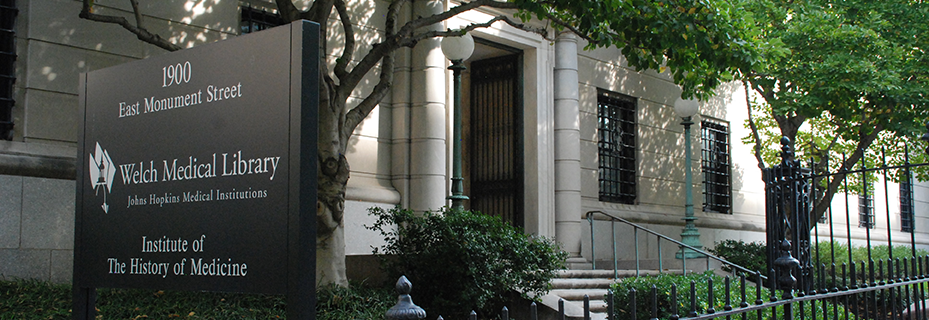
The Department of the History of Medicine is the oldest such academic department in North America. We are dedicated to scholarship in the history of medicine, disease and the health sciences, and their relation to society. The Department seeks to bring historical perspectives to bear on contemporary health issues. Faculty members conduct research on a broad range of topics, time periods, and geographic areas. The Department offers a PhD in the History of Medicine.
View the History of Medicine Site
Program in the History of Medicine
Medical School
- Donate & Get Involved
- News & Events

Dedicated to research and teaching in the history of disease, healthcare, and medical science
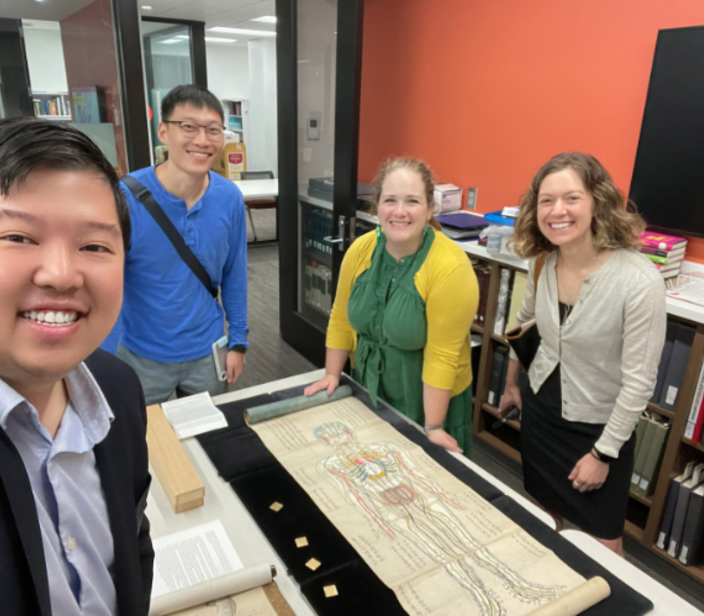
We offer MA and Ph.D. degrees through the Program in the History of Science, Technology, and Medicine (HSTM). The Program in HSTM is a joint graduate program of the Program in the History of Medicine (Medical School) and the Program in the History of Science and Technology (College of Science and Engineering).
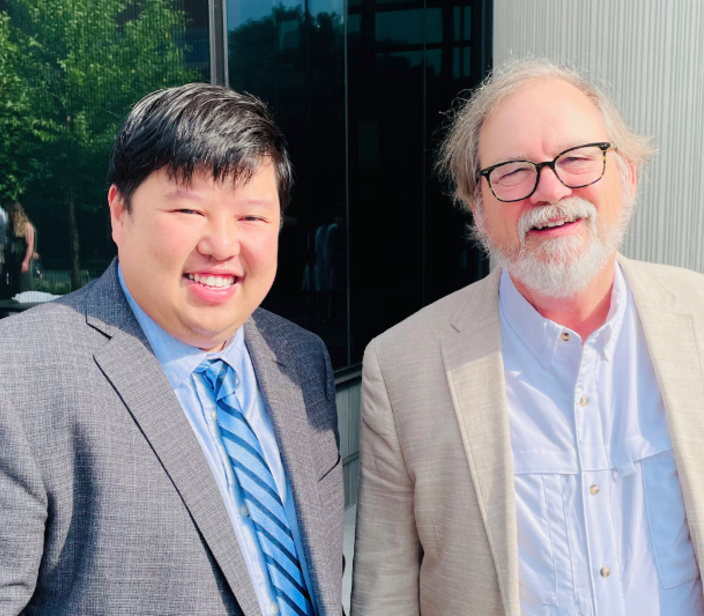
We offer a variety of HMED courses each semester, and an undergraduate minor through the minor in the History of Science, Technology, and Medicine. The history of medicine is excellent preparation for undergraduate students interested in careers in the health professions, journalism, public policy, public history, and a range of academic careers.
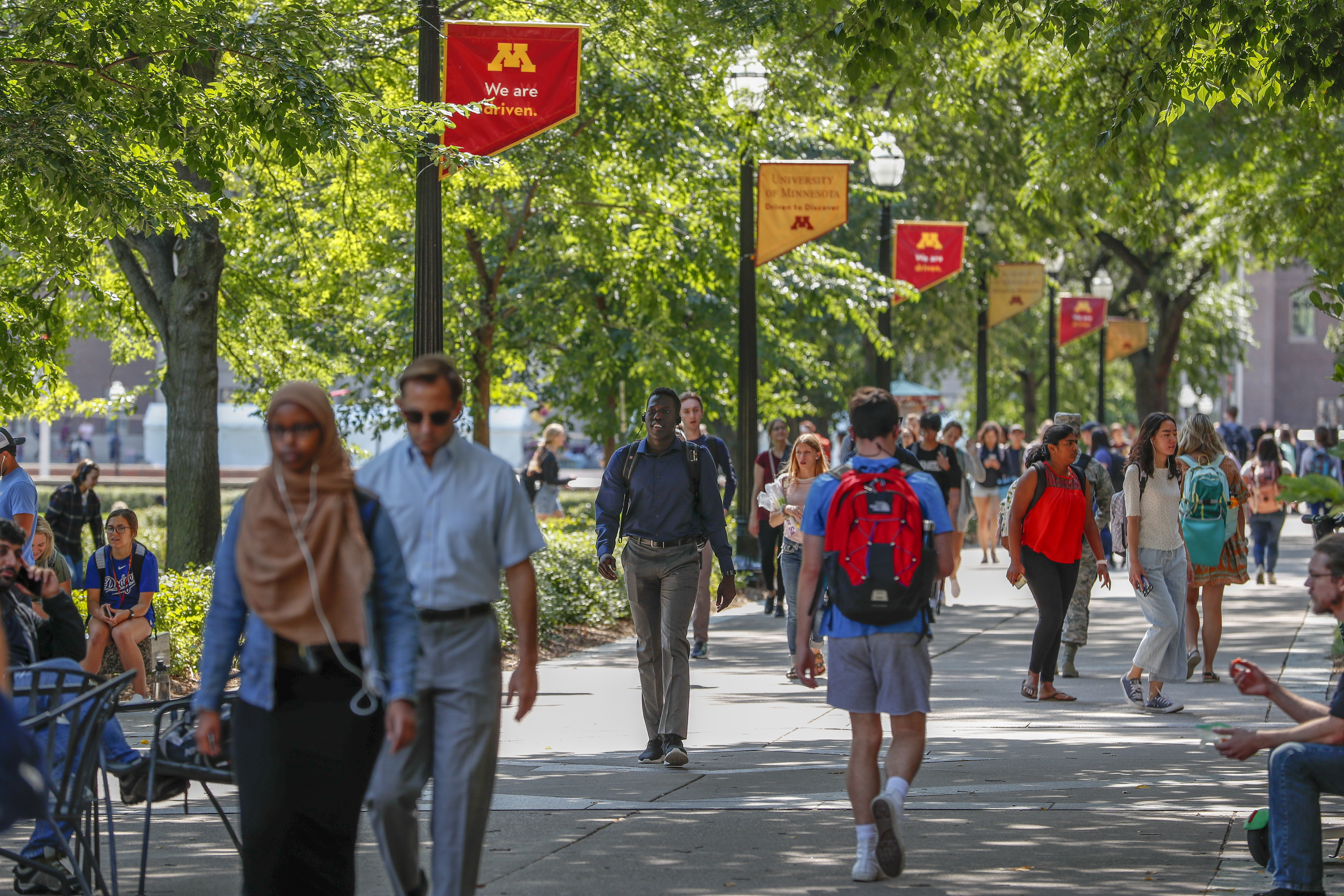
The Program in the History of Medicine has been dedicated to research and teaching in the history of disease, healthcare, and medical science. Founded in 1967, the Program is located in the Medical School and the Department of Surgery. The Program gives students a historical perspective on the role of health, medicine, and disease in society today. By equipping students with the tools to analyze textual, visual, and statistical materials relating to the history of medicine, students learn to think critically about historical and contemporary health issues across the globe.
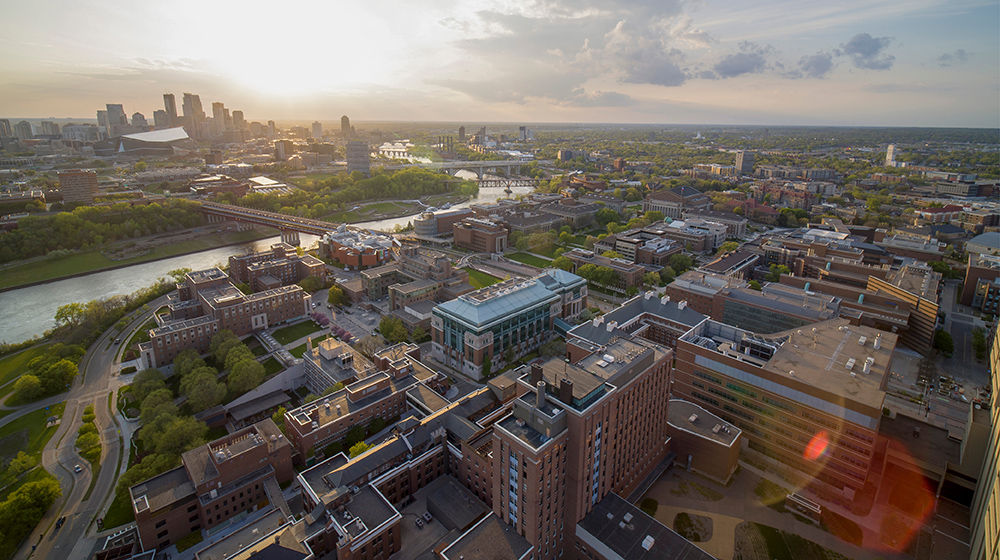
Our faculty have a wide variety of research and teaching interests. We teach courses ranging from the history of healthcare, medicine, and society in the premodern and modern eras, the history of women, gender, and medicine, technology and medicine in modern America, medical humanities and literature, the history of medicine and diseases in East Asia, and demography, data, and healthcare.
- Graduate work leading to MA and Ph.D. degrees in the Program in History of Science, Technology, and Medicine
- Undergraduate elective courses and an undergraduate minor
- Historical Segments in the Medical School Curriculum
- An annual lecture series that provides a forum for the newest work of scholars in our discipline.
Department of History
Ph.d. programs.
The Department of History’s doctoral degree program seeks to train talented historians for careers in scholarship, teaching, and beyond the academy. The department typically accepts 22 Ph.D. students per year. Additional students are enrolled through various combined programs and through HSHM. All admitted Ph.D. students receive a full financial aid package from the Graduate School of Arts and Sciences.
History of Science and Medicine
The Program in the History of Science and Medicine (HSHM) is a semi-autonomous graduate track within the Department of History. HSHM students receive degrees in History, with a concentration in the History of Science and Medicine. There is a separate admissions process for students interested in the History of Science and Medicine. For more information, please see the HSHM website .
Combined Doctoral Programs
Joint ph.d. programs.

- Research Areas, Centers & Programs
- Laboratories
- Research Cores
- Clinical Trials
- Office of Research Administration
- Technology & Innovations
- Clinical & Translational Research Center
- News & Breakthroughs
- Graduate Medical Education
- Graduate School of Biomedical Sciences
- Continuing Medical Education
- Professional Training Programs
- Women's Guild Simulation Center
- Center for the Arts and Humanities in Medicine
- Medical Library
- Campus Life
- Office of the Dean
- Academic Calendar
Program in the History of Medicine
The Cedars-Sinai History of Medicine Program explores the evolution of medical knowledge and practice from antiquity to the present. Bringing together historians, clinicians, scientists and ethicists, we combine historical methods with contemporary biomedical knowledge to advance our understanding of the relationship between medicine, science and technology, the nature and experience of disease, healthcare ethics, medical education, and the changing roles of institutions, practitioners and patients in the world of medicine. Our programming, including a monthly speaker series that hosts international authorities and a variety of six-week courses offered throughout the year, emphasizes the social and institutional contexts of medicine and biomedical science, inequities in healthcare, and the many ways in which developments in anatomy, physiology and pathology have influenced the prevention of disease. The program serves as a hub for historical research, where historians collaborate in a unique “laboratory” for the study of medical and scientific history.
Program Content
Program curriculum.
- A monthly speaker series that brings notable historians of medicine and science to guest lecture
- Six-week courses on various topics in the history of medicine, taught by program faculty for the Cedars-Sinai community and other interested students
- Opportunities for residents, fellows and faculty to engage in historical research under the mentorship of program faculty
- The Program in the History of Medicine is affiliated with the Graduate School of Biomedical Sciences
- A twice-yearly newsletter discussing the history of medicine and the history of Cedars-Sinai , with special attention to program initiatives, contemporary events and recent history.
How to Participate
Anyone within Cedars-Sinai or the Southern California healthcare community is welcome to participate in our programming. Our online programming is open to audiences beyond Southern California as well.
Program participants have the opportunity to reflect on the nature of medical practice through the lens of the past. Of particular interest to attendees is seeking to understand how the social, cultural, intellectual and institutional context of medicine shaped its evolution into what it is today.
Send us a message to sign up for our History of Medicine Program email.
Faculty & Administration
Primary and affiliated faculty, alongside our Fellows in the History of Medicine and visiting faculty, all bring their passion and expertise to deliver exceptional programming and educational opportunities.
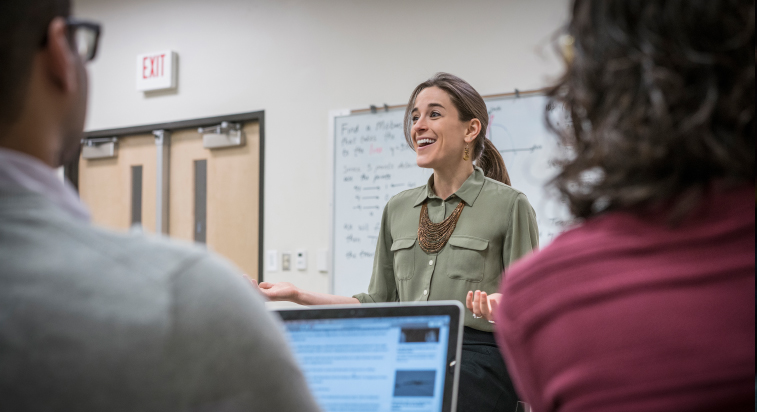
The History of Medicine Program hosts a regular series of seminars, lectures and roundtables for the medical center community.
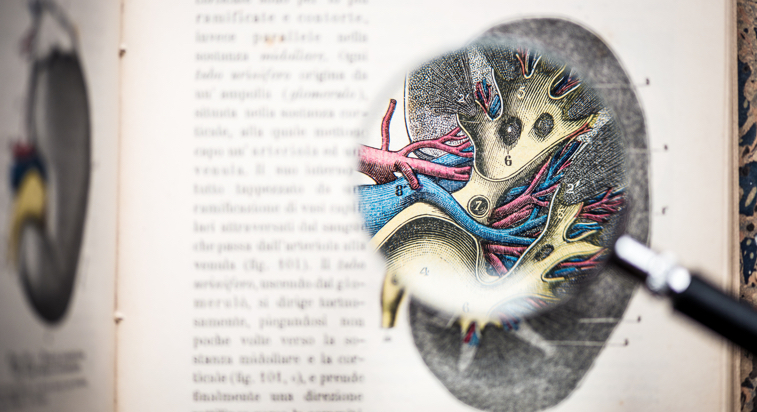
Career Opportunities
The History of Medicine Program at Cedars-Sinai occasionally has unique career opportunities available for outstanding candidates in this field. Typical job features include challenging teaching assignments and substantial time to pursue research.

The Cedars-Sinai History of Medicine Program offers a variety of six-week courses on historical topics open to the Cedars-Sinai community and other interested students.

Medicine, Holocaust and Genocide Studies
The Center for Medicine, Holocaust and Genocide Studies is an interdisciplinary research center affiliated with the History of Medicine Program.

Have Questions or Need Help?
Contact us if you have questions or would like additional information about the History of Medicine Program.
- History of Science & Medicine
The Graduate Program in the History of Science & Medicine is a semi-autonomous graduate track within the Department of History. The program’s students are awarded degrees in History, with a concentration in the History of Science and Medicine. Fields of study include all subjects and periods in the history of science and history of medicine, especially the modern era. Special fields represented include American and European science and medicine; disease, therapeutics, psychiatry, drug abuse, and public health; science and national security; science and law, science and religion, life sciences, human genetics, eugenics, biotechnology, gender, race, and science/medicine; bioethics and medical research; environmental sciences; human and social sciences; physical and earth sciences.
- Programs of Study
- PhD - Doctor of Philosophy
- MA - Master of Arts
- Program in the History of Science & Medicine
Joanna Radin
Director of Graduate Studies
Departmental Registrar
Admission Requirements
Standardized testing requirements.
GRE is optional.
Program-Specific Application Requirements
A writing sample is required by this program.
English Language Requirement
TOEFL iBT or IELTS Academic is required of most applicants whose native language is not English.
You may be exempt from this requirement if you have received (or will receive) an undergraduate degree from a college or university where English is the primary language of instruction, and if you have studied in residence at that institution for at least three years.
Academic Information
Program Advising Guidelines
GSAS Advising Guidelines
Academic Resources
Academic calendar.
The Graduate School's academic calendar lists important dates and deadlines related to coursework, registration, financial processes, and milestone events such as graduation.
Featured Resource
Registration Information and Dates
https://registration.yale.edu/
Students must register every term in which they are enrolled in the Graduate School. Registration for a given term takes place the semester prior, and so it's important to stay on top of your academic plan. The University Registrar's Office oversees the systems that students use to register. Instructions about how to use those systems and the dates during which registration occurs can be found on their registration website.
Financial Information
Phd stipend & funding.
PhD students at Yale are normally full-funded for a minimum of five years. During that time, our students receive a twelve-month stipend to cover living expenses and a fellowship that covers the full cost of tuition and student healthcare.
- PhD Student Funding Overview
- Graduate Financial Aid Office
- PhD Stipends
- Health Award
- Tuition and Fees
Master's Funding
While Master's programs are not generally funded, there are resources available to students to help navigate financial responsibilities during graduate school.
- Master's Student Funding Overview
- Yale Student Grants Database
- Student Employment
- Loans for US Citizens
- Loans for Non-US Citizens
Alumni Insights
Below you will find alumni placement data for our departments and programs.

History of Medicine

Areas of Research: History of Medicine; History of Social Sciences; Global Health; Postcolonial Studies; Immigration... Read more about Eram Alam

Allan M. Brandt
Areas of Research: Global Health / Public Health, History of Medicine, Medical Humanities, Science Policy... Read more about Allan M. Brandt

Evelynn Hammonds
Areas of Research: African & African-American Studies, History of Medicine, Science & Race, Science & Technology Studies, Women & Gender Studies ... Read more about Evelynn Hammonds

Anne Harrington
Areas of Research: History of Medicine, Human Sciences, Medical Humanities, Psychiatry, Neuroscience... Read more about Anne Harrington

David S. Jones
Areas of Research: Science & Race, Global Health / Public Health, History of Biology, History of Medicine, Medical Humanities, Psychology & Theories of Mind, Science & Technology Studies, Technology & Society
... Read more about David S. Jones

Michelle LaBonte

Gabriela Soto Laveaga
Areas of Research: Modern Latin America; intersection of science and culture; public health; scientific and medical exchange in the Global South ... Read more about Gabriela Soto Laveaga
- Department Staff (14)
- Faculty Affiliates (11)
- Visiting Faculty & Lecturers (5)
- Department Associates (19)
- Emeriti (6)
- Faculty In Memoriam (9)
- Graduate Students (48)
- Recent Alumni (60)
- Postdoctoral Fellows (1)
- Visiting Fellows (4)
- Visiting Scholars (3)
- Skip to Content
- Catalog Home
- History of Science, Medicine and Technology, PhD

One of the oldest, most prestigious academic programs of its kind in the United States, History of Science, Medicine, and Technology (HSMT) draws together faculty members in History and in Medical History & Bioethics . Collectively, we offer broad coverage of the field, with expertise that spans Europe, the United States, Africa, and the Caribbean, stretches from the Middle Ages to the recent past, and ranges across the physical, biological, and social sciences to medicine and technology.
Our degree program in the History of Science, Medicine, and Technology is designed to meet the needs of the PhD candidate, and we offer funding only to students who intend to pursue the PhD. However, we also welcome applications from students who wish to earn only the MA. if they have external funding or are self-funded. Students with doctoral training in one of the health professions may earn an MA in History of Medicine. It is also possible to earn a combined MD/PhD degree through the School of Medicine & Public Health’s Medical Scientist Training Program and the HSMT degree program.
History of Science, Medicine, and Technology at UW–Madison is known for the strength and diversity of its areas of study and its warm, collegial environment. All historical aspects of science, medicine, and technology receive attention—from their internal development to their broader institutional, philosophical, religious, and literary contexts, as well as their relationships with print culture, visual culture, and material culture. Students and faculty regularly participate in the program’s weekly Brown Bag and monthly colloquium series, both of which provide opportunities to present work, discuss professional issues, and engage with a wide range of on-campus and outside speakers.
Graduate students come to the HSMT degree program from a variety of backgrounds in the sciences and humanities and with diverse professional goals. The program maintains a policy of maximum flexibility and, insofar as possible, tailors the work required for the degree to fit the individual. Students are encouraged to undertake work in related programs such as history, philosophy, science and technology studies, and the various sciences. Joint degrees in HSMT and another degree program are also possible (see below). Our graduates pursue research and teaching careers in the history of science, medical history, history of technology, intellectual and cultural history, science in general education programs, science writing, and museum work.
Joint PhD in History and History of Science, Medicine, and Technology
Students who wish to obtain a joint PhD in History and the History of Science, Medicine, and Technology are initially admitted to one of the degree programs, and should indicate interest in the joint PhD program at that time. After completion of a master’s degree in History or History of Science, Medicine, and Technology, the student applies for admission to the other degree program and, at the same time, to a standing committee of the two programs for admission to the joint program.
Having been admitted to the other degree program and to the joint PhD program, the student then applies to the Graduate School for approval of the joint PhD (see the Graduate School's academic policy regarding joint degrees for more information and deadlines). The student’s application to the standing committee should take the same form as required by the Graduate School and should be prepared in close consultation with department faculty/staff.
Students in the joint PhD program are assigned a home degree program and follow the regulations of that degree program with regard to seminar requirements, language requirements, financial aid, and regulations for satisfactory progress. Since the joint PhD meets the doctoral minor requirement of the Graduate School, no formal minor is required of students receiving a joint PhD. However, students who wish to have a minor field recorded on the transcript may complete a regular Option A or Option B minor, or the internal minor of the department.
The joint PhD student’s work is supervised by a committee consisting of three faculty members (two from the home degree program). The preliminary examinations test the student’s competence in both history and history of science, medicine, and technology, balancing the material and fields between the two departments (e.g. two in each, or three in one and two in the other). The number of prelim fields must equal the number required of students majoring exclusively in history or in history of science, medicine, and technology, plus one. Preparation of the PhD dissertation is guided by the student's supervising committee. Satisfactory completion and defense of the dissertation constitute the final requirements for the joint PhD degree.
Joint PhD with other degree programs
Students in the History of Science, Medicine, and Technology degree program who wish to pursue a joint PhD (one degree, two majors) with another degree program must first be admitted to the other degree program. The proposal for the degree must be approved by the Department of History's Graduate Council before it is submitted to the Graduate School. Students admitted to a joint PhD will satisfy all the normal requirements of their field in History except the minor requirement.
In past years, HSMT students have successfully completed a joint PhD with the Philosophy, Classics, Psychology, History, Chemistry, Mathematics, and Physics degree programs.
For more information on joint PhD options, please contact the graduate program coordinator.
Program in Gender and Women's History (PGWH)
Working under the supervision of a PGWH faculty member, History of Science, Medicine, and Technology students may organize their studies to emphasize gender, women’s history, or sexuality. They meet all their HSMT requirements, take the PGWH core seminar on transnational gender history, and take at least two additional History or HSMT graduate seminars that are gender-specific.
Applicants to the HSMT degree program who wish to be considered for the concentration in gender and women's history should indicate this on their Graduate School application.
For more details, see Program in Gender and Women's History or contact the graduate program coordinator.
Please consult the table below for key information about this degree program’s admissions requirements. The program may have more detailed admissions requirements, which can be found below the table or on the program’s website.
Graduate admissions is a two-step process between academic programs and the Graduate School. Applicants must meet the minimum requirements of the Graduate School as well as the program(s). Once you have researched the graduate program(s) you are interested in, apply online .
Graduate Admissions Requirements | Requirements | Detail |
| Fall Deadline | December 1 |
| Spring Deadline | This program does not admit in the spring. |
| Summer Deadline | This program does not admit in the summer. |
| GRE (Graduate Record Examinations) | Not required. |
| English Proficiency Test | Every applicant whose native language is not English, or whose undergraduate instruction was not exclusively in English, must provide an English proficiency test score earned within two years of the anticipated term of enrollment. Refer to the Graduate School: Minimum Requirements for Admission policy: . |
| Other Test(s) (e.g., GMAT, MCAT) | n/a |
| Letters of Recommendation Required | 3 |
Application Materials
To apply, applicants must submit or declare the following in the online application :
History Supplemental Application
This section of the application asks you to provide information about your research interests, declare your preferred faculty advisors, and outline your prior language preparation (if any).
Writing Sample
Provide a sample that best illustrates the quality of your written work (optimally no more than 50 pages, double-spaced; maximum file size 6 MB).
Transcripts
Upload an unofficial copy of your transcript from all institutions attended, showing any undergraduate and graduate degrees awarded. If accepted, the Graduate School will ask for official transcripts from each institution.
CV or Resumé
This should highlight your accomplishments and qualifications including academic honors or distinctions; professional, research, and/or teaching experience; and any publications.
Letters of Recommendation
Provide contact information for the three individuals who will furnish recommendations on your behalf (they will receive an upload link by email). Your letter writers need not be historians, but they should be able to speak to your academic preparation to pursue historical studies at the graduate level.
Statement of Purpose
The statement of purpose (2–3 pages, double-spaced) explains your reasons for graduate study. It may be the hardest part of the application to write, but it is also the most important. While you will likely include some autobiographical information, its primary purpose is to acquaint us with how your mind works. We want to know, for example, what kinds of intellectual problems and issues interest you, whose stories intrigue you, what sorts of analytical or narrative approaches you like to pursue, which historical writings you admire—and your reasons for these various preferences. Please help us understand your decision to enter the historical profession, especially at a time when the academic job market is in decline, and how you see your own role in it. There is no single right way to approach this part of the application, but we suggest that you bear in mind the usual cautions for personal writing: speak straightforwardly, in your own voice, and write as well as you know how.
International Applicants
All international applicants must also meet the English Proficiency requirements set forth by the Graduate School.
For additional detail about the admissions process, please visit the Prospective Student pages on our website.
Graduate School Resources
Resources to help you afford graduate study might include assistantships, fellowships, traineeships, and financial aid. Further funding information is available from the Graduate School. Be sure to check with your program for individual policies and restrictions related to funding.
Program Resources
We offer funding only to students who intend to pursue the PhD—an application for admission to our PhD program, therefore, is an application for funding. We also welcome applications from students who have external funding or are self-funded, including those pursuing the MA only.*
Multi-Year Funding Package
If you apply to the History of Science, Medicine, and Technology (HSMT) PhD degree program without external or self-funding and are accepted, you will be offered a multi-year support package, which begins in your first year. The details of our support guarantees may vary by funding source, field of study, and other circumstances, and the guarantee is, of course, contingent on satisfactory progress and performance. Most of our support packages offer 5 years of support and begin with a fellowship year from the UW–Madison Graduate School, generously funded by the Wisconsin Alumni Research Foundation . Our most distinguished packages include two years of fellowships:
- Graduate Research Scholar fellowships for underrepresented students or first-generation college students—offered annually
- John A. Neu Fellowship in the History of Science, Medicine, and Technology—offered as endowment income permits
Additional years of guaranteed funding will come from employment as teaching assistants or project assistants or additional fellowships.
Competing For Additional Support
All students in good standing can apply for writing prizes, conference travel awards, and supplements to external awards. Once graduate students have passed their preliminary examination and advanced to candidacy, they may apply for various departmental fellowships and research travel funding.
Further funding opportunities are available to students who have reached the advanced stages of dissertation writing. Our advanced dissertators may apply for teaching fellowships that give them the opportunity to design and teach an undergraduate course—the Merle Curti Teaching Fellowship (open field), the George L. Mosse Teaching Fellowship in European History , and the William J. Courtenay Teaching Fellowship in ancient, medieval, or early modern European history. The William Coleman Dissertation Fellowship in the History of Science supports one semester of advanced dissertation writing, as does the David and Greta Lindberg Distinguished Graduate Fellowship. (These fellowships are offered as often as endowment income permits.) Thanks to funding provided by the Doris G. Quinn Foundation , we are also pleased to offer a dissertator Fellowship, which supports the final year of dissertation writing in any field.
In addition, UW–Madison offers a wealth of other opportunities to compete for funding offered, for example, by the International Division , the Institute for Research in the Humanities , and the UW Graduate School ( research and conference travel awards ).
More details on our funding for current/continuing students are available here .
* If you wish to apply only for the HSMT MA (also known as the terminal MA) or for the MA in History of Medicine for Health Professionals, please describe your sources of support on the History Supplemental Application. For information on the cost of graduate study at UW–Madison, see this link .
Minimum Graduate School Requirements
Major requirements.
Review the Graduate School minimum academic progress and degree requirements , in addition to the program requirements listed below.
Mode of Instruction
Mode of Instruction | Face to Face | Evening/Weekend | Online | Hybrid | Accelerated |
| Yes | No | No | No | No |
Mode of Instruction Definitions
Accelerated: Accelerated programs are offered at a fast pace that condenses the time to completion. Students typically take enough credits aimed at completing the program in a year or two.
Evening/Weekend: Courses meet on the UW–Madison campus only in evenings and/or on weekends to accommodate typical business schedules. Students have the advantages of face-to-face courses with the flexibility to keep work and other life commitments.
Face-to-Face: Courses typically meet during weekdays on the UW-Madison Campus.
Hybrid: These programs combine face-to-face and online learning formats. Contact the program for more specific information.
Online: These programs are offered 100% online. Some programs may require an on-campus orientation or residency experience, but the courses will be facilitated in an online format.
Curricular Requirements
University General Education Requirements | Requirements | Detail |
| Minimum Credit Requirement | 51 credits |
| Minimum Residence Credit Requirement | 32 credits |
| Minimum Graduate Coursework Requirement | 26 credits must be graduate-level coursework. Refer to the Graduate School: Minimum Graduate Coursework (50%) Requirement policy: . |
| Overall Graduate GPA Requirement | 3.25 GPA required. |
| Other Grade Requirements | n/a |
| Assessments and Examinations | In order to receive the History PhD, all students must pass the preliminary exam and the PhD dissertation defense.
Preliminary Examination: Each field of study has its own exact requirements for prelims, but all include written exams and an oral defense of the student's research proposal and knowledge of the field.
PhD Dissertation Defense: Two-hour oral exam focusing on the student's written dissertation. |
| Language Requirements | The program requires proficiency in a foreign language and either a second foreign language or the use of an analytical tool as described below. Students who are working toward a degree as part of a combined MD/PhD program only need to demonstrate proficiency in one foreign language.
Students must demonstrate proficiency in a language other than English in order to pass the Second-Year Review. Students must also demonstrate proficiency in either a second language other than English or the use of an analytical tool (e.g. statistical methods, visual culture methods, ethnography) before achieving dissertator (ABD) status.
If a student chooses the option of an analytical tool, the student must submit a proposal to be approved by the HSMT faculty. Once approved, the student must complete 9 credits appropriate to gaining competency in the use of this set of tools. Students must make at least a 3.0 (B grade or better) in these courses. Credits taken towards a graduate minor may not be used towards the completion of the analytical tool option.
Dissertator status, with its attendant reduction in tuition, is contingent upon satisfying these two requirements. |
| Graduate School Breadth Requirement | All doctoral students are required to complete a doctoral minor or graduate/professional certificate. Refer to the Graduate School: Breadth Requirement in Doctoral Training policy: . |
Required Courses
Course List | Code | Title | Credits |
| Core | |
| Students must complete the following courses. | |
| | History in a Global Perspective | 1 |
| | Proseminar: Historiography and Methods | 3 |
| | Research Seminar in History | 3 |
| Six Distribution Areas | 12 |
| Students must complete courses in each of the following distribution areas. Courses may fulfill more than one distribution area. | |
| Temporal | |
| | |
| | |
| Topical | |
| | |
| | |
| Geographic | |
| | |
| | |
| Electives | 11 |
| Work with your advisors to complete additional elective credits in courses numbered 700 and above. | |
| Seminars | |
| Students must complete two seminars numbered 700 and above. | |
| Breadth | 9 |
| Language Requirement | |
| Students must gain proficiency in a second foreign language prior to taking the preliminary examination. Courses are chosen in consultation with advisor. | |
| Research | |
| After passing the preliminary examination, students register for the following course each semester until they deposit their dissertation. | |
| | Research and Thesis | 1-9 |
| Total Credits | 51 |
Students are also recommended to take HISTORY 999 Independent Work and HISTORY 710 Professional Development Seminar .
Distribution Areas
Temporal distribution area courses.
Course List | Code | Title | Credits |
| 1. Pre 1800 | |
& | The Scientific Revolution: From Copernicus to Newton
and Studies in Early Modern Science | 4 |
| | History of Pharmacy | 2 |
| | Seminar: Medieval, Renaissance, and 17th Century Science (Early Modern Translation) | 3 |
| | Seminar-Eighteenth Century Science (Early Modern Translation) | 3 |
| | Graduate Studies in Medical History (Flesh and Metal: A History of Bodies, Race, Labor, and Capital) | 3 |
| 2. 1800 to the Present | |
| | A History of Disease | 3-4 |
| | Health, Disease and Healing II | 3-4 |
| | Race, American Medicine and Public Health | 3 |
| | Women and Health in American History | 3 |
| | The History of the (American) Body | 3 |
| | Disease, Medicine and Public Health in the History of Latin America and the Caribbean | 3 |
| | The Development of Public Health in America | 3 |
& | International Health and Global Society
and International Health and Global Society | 4 |
| | Undergraduate Seminar in History of Science (Digital Capitalism) | 3 |
| | Drug History: Dangerous Drugs and Magic Bullets | 2 |
| | Psychedelic History: Sacred Plants, Science & Psychotherapy | 3 |
| | Seminar: History of Technology (Technology, Power, and Democracy) | 3 |
| | Graduate Studies in Medical History (Life and Death in American History) | 3 |
| | Graduate Studies in Medical History (Foucault for Historians) | 3 |
| | Seminar-Special Topics (Science from the South) | 3 |
| | Seminar-Special Topics (Science and Empire) | 3 |
| | Seminar-Special Topics (Science, Race and Nature) | 3 |
Topical Distribution Area Courses
Course List | Code | Title | Credits |
| 3. Science/Technology | |
& | The Scientific Revolution: From Copernicus to Newton
and Studies in Early Modern Science | 4 |
| | Undergraduate Seminar in History of Science | 3 |
| | Psychedelic History: Sacred Plants, Science & Psychotherapy | 3 |
| | Seminar: Medieval, Renaissance, and 17th Century Science (Early Modern Translation) | 3 |
| | Seminar-Eighteenth Century Science (Early Modern Translation) | 3 |
| | Seminar: History of Technology (Technology, Power, and Democracy) | 3 |
| | Seminar-Special Topics (Science and Empire) | 3 |
| | Seminar-Special Topics (Science from the South) | 3 |
| | Seminar-Special Topics (Science, Race, and Nature) | 3 |
| 4. Medicine/Public Health | |
| | History of Pharmacy | 2 |
| | A History of Disease | 3-4 |
| | Health, Disease and Healing II | 3-4 |
| | The Development of Public Health in America | 3 |
| | Race, American Medicine and Public Health | 3 |
| | Women and Health in American History | 3 |
| | The History of the (American) Body | 3 |
& | International Health and Global Society
and International Health and Global Society | 4 |
| | Drug History: Dangerous Drugs and Magic Bullets | 2 |
| | Disease, Medicine and Public Health in the History of Latin America and the Caribbean | 3 |
| | Graduate Studies in Medical History (Life and Death in American History) | 3 |
| | Graduate Studies in Medical History (Flesh and Metal: A History of Bodies, Race, Labor, and Capital) | 3 |
| | Graduate Studies in Medical History (Foucault for Historians) | 3 |
Geographic Distribution Area Courses
Course List | Code | Title | Credits |
| 5. Global/Non-Western | |
& | The Scientific Revolution: From Copernicus to Newton
and Studies in Early Modern Science | 4 |
| | History of Pharmacy | 2 |
& | International Health and Global Society
and International Health and Global Society | 4 |
| | Disease, Medicine and Public Health in the History of Latin America and the Caribbean | 3 |
| | Seminar: Medieval, Renaissance, and 17th Century Science (Early Modern Translation) | 3 |
| | Seminar-Eighteenth Century Science (Early Modern Translation) | 3 |
| | Graduate Studies in Medical History (Flesh and Metal: A History of Bodies, Race, Labor, and Capital) | 3 |
| | Seminar-Special Topics (Science from the South) | 3 |
| | Seminar-Special Topics (Science and Empire) | 3 |
| | Seminar-Special Topics (Science, Race, and Nature) | 3 |
| 6. Euro-American | |
| | A History of Disease | 3-4 |
| | Health, Disease and Healing II | 3-4 |
| | The Development of Public Health in America | 3 |
| | Race, American Medicine and Public Health | 3 |
| | Women and Health in American History | 3 |
| | The History of the (American) Body | 3 |
| | Undergraduate Seminar in History of Science | 3 |
| | Drug History: Dangerous Drugs and Magic Bullets | 2 |
| | Psychedelic History: Sacred Plants, Science & Psychotherapy | 3 |
| | Seminar: History of Technology (Technology, Power, and Democracy) | 3 |
| | Graduate Studies in Medical History (Life and Death in American History) | 3 |
| | Graduate Studies in Medical History (Foucault for Historians) | 3 |

History of Medicine Pathway 1
This pathway is intended for students with doctoral training in one of the health professions.
Course List | Code | Title | Credits |
| Students must complete the following courses. | |
| | Proseminar: Historiography and Methods | 3 |
| | Health, Disease and Healing I | 3-4 |
| | Health, Disease and Healing II | 3-4 |
| | The Development of Public Health in America | 3 |
| | Science, Technology and Medicine in Society | 3 |
| Additional History of Medicine Course | 3 |
| Electives | 9 |
| | |
| Seminars | |
| Students must complete two seminars numbered 700 and above. | |
| Breadth | 9 |
| Language Requirement | |
| Students must gain proficiency in a second foreign language prior to taking the preliminary examination. Courses are chosen in consultation with advisor. | |
| Research | |
| After passing the preliminary examination, students register for the following course each semester until they deposit their dissertation. | |
| | Research and Thesis | 1-9 |
| Total Credits | 51 |
These pathways are internal to the program and represent different curricular paths a student can follow to earn this degree. Pathway names do not appear in the Graduate School admissions application, and they will not appear on the transcript.
Take advantage of the Graduate School's professional development resources to build skills, thrive academically, and launch your career.
The Department of History is committed to training our students to develop skills required for a variety of careers both in and outside the academy. Although a large network of our alumni teach at colleges and universities in the U.S. and across the world, a number of our PhDs have enjoyed considerable success outside the academy. They include recent graduates who are currently a museum curator, teachers at prestigious preparatory academies, a historian with the U.S. Secretary of Defense's POW/Missing Persons Agency, a CEO of an investment firm, an analyst for a defense contractor, an editor at a small press, and consultants working with non-profits in the human services, education, and public policy fields. In recent years we have undertaken a number of initiatives, detailed below, to broaden the training of our students for a wide array of careers.
Much of the preparation for the job market occurs informally and over the course of the student's graduate career—in the mentoring relationship between faculty advisor and student, in the presentation of student research in department venues, in the student's participation in professional conferences, and in early forms of professional publication. Coursework, such as for the minor requirement or certificates, can be an avenue to expanded competencies. The Center for Humanities, for example, offers a Public Humanities certificate . Be sure to explore the Graduate School's resources such as " The Versatile PhD " and its Professional Development pages .
Whatever career paths interest you, we encourage you to plan ahead and discuss your options—early and often—with your faculty advisor(s), with the Director of Graduate Studies, or with the Graduate Program Manager.
Professional Development Seminars
Professional development events, preliminary examination workshop.
This offers a discussion of the various requirements for preliminary examinations: how to assemble committees, compiling reading lists, Graduate School requirements, and more.
Curriculum Vitae Workshops
These workshops are designed for students at all levels, ranging from first-year students writing CVs for campus positions to advanced dissertators on the job market.
Mock Interviews
The Graduate Program offers a series of opportunities to practice with a committee of our faculty for AHA interviews and on-campus job talks. They are open to a limited number of students who expect to be actively on the job market in the fall.
Careers in History Workshops
Our program is committed to helping its graduates seek and secure employment following the completion of their PhDs. Since the financial crisis in 2008, the academic job market has softened markedly. While the Graduate Program continues to provide outstanding preparation for academic jobs, we also encourage our students to think more broadly about their career prospects and the transferability of their skills. As funds permit, we occasionally bring to campus History graduates who are working in the non-profit, private, or public sector to meet with current graduate students and share their experiences. We also offer opportunities to learn best practices for post-doctoral fellowship applications.
- Learning Outcomes
- Articulates research problems clearly and understands the limits of current theories, knowledge, or practices within HSMT.
- Pushes the boundaries of current knowledge in HSMT in formulating research questions, in the selection or use of primary sources, or in interpreting evidence.
- Demonstrates breadth within their learning experiences.
- Communicates complex ideas in a clear and understandable manner.
- Gains appropriate experience relating to designing and teaching university-level courses.
- Is able to articulate the broader significance of their work and the discipline of HSMT to scholars in other fields or disciplines and to the wider public.
- Fosters ethical and professional conduct.
Graduate School Policies
The Graduate School’s Academic Policies and Procedures provide essential information regarding general university policies. Program authority to set degree policies beyond the minimum required by the Graduate School lies with the degree program faculty. Policies set by the academic degree program can be found below.
Major-Specific Policies
Prior coursework, graduate credits earned at other institutions.
Total credits transferred for the PhD requirements, including those approved for the MA, may not exceed 19 credits. No credits earned more than ten years before admission to the PhD program may be used. A maximum of 5 credits earned between five and ten years before admission to the PhD program may transfer. No credits carrying a grade below B may be applied toward graduate credit requirements.
Undergraduate Credits Earned at Other Institutions or UW-Madison
No credits from a previous undergraduate degree are allowed to transfer.
Credits Earned as a Professional Student at UW-Madison (Law, Medicine, Pharmacy, and Veterinary careers)
Refer to the Graduate School: Transfer Credits for Prior Coursework policy.
Credits Earned as a University Special Student at UW–Madison
With program approval, students are allowed to transfer no more than 9 credits of coursework numbered 300 or above taken as a University Special student. Coursework earned ten or more years prior to admission to a doctoral degree is not allowed to satisfy requirements. No credits carrying a grade below B are transferable.
Refer to the Graduate School: Probation policy.
Advisor / Committee
Refer to the Graduate School: Advisor and Graduate School: Committees (Doctoral/Master’s/MFA) policies.
Credits Per Term Allowed
Time limits.
Refer to the Graduate School: Time Limits policy.
Grievances and Appeals
These resources may be helpful in addressing your concerns:
- Bias or Hate Reporting
- Graduate Assistantship Policies and Procedures
- Office of the Provost for Faculty and Staff Affairs
- Employee Assistance (for personal counseling and workplace consultation around communication and conflict involving graduate assistants and other employees, post-doctoral students, faculty and staff)
- Employee Disability Resource Office (for qualified employees or applicants with disabilities to have equal employment opportunities)
- Graduate School (for informal advice at any level of review and for official appeals of program/departmental or school/college grievance decisions)
- Office of Compliance (for class harassment and discrimination, including sexual harassment and sexual violence)
- Office Student Assistance and Support (OSAS) (for all students to seek grievance assistance and support)
- Office of Student Conduct and Community Standards (for conflicts involving students)
- Ombuds Office for Faculty and Staff (for employed graduate students and post-docs, as well as faculty and staff)
- Title IX (for concerns about discrimination)
Students should contact the department chair or program director with questions about grievances. They may also contact the L&S Academic Divisional Associate Deans, the L&S Associate Dean for Teaching and Learning Administration, or the L&S Director of Human Resources.
See the History department webpage for a full directory of faculty .
Also see our faculty affiliate and teaching associate profiles.
Contact Information
History College of Letters & Science History of Science, Medicine and Technology, PhD 608-263-1800 Website maps.wisc.edu/s/wjmlvr3g
Charles Kim, Director of Graduate Studies [email protected] 608 263-1831 4122 Mosse Humanities 455 N. Park St., Madison, WI 53706
Susan Nelson, Graduate Program Manager [email protected] 608 263-1961 4219 Mosse Humanities 455 N. Park St., Madison, WI 53706
Lisa Normand, Graduate Advisor/Admissions Coordinator [email protected] 608 263-1960 4217 Mosse Humanities 455 N. Park St., Madison, WI 53706
Graduate Program Handbook View here
Graduate School grad.wisc.edu
- /api/
- /pdf/
- Explore Graduate Opportunities
- Explore UW-Madison's Undergraduate Opportunities
- Accounting and Information Systems
- African American Studies
- African Cultural Studies
- Agricultural and Applied Economics
- Agricultural and Life Sciences - College-Wide
- Animal and Dairy Sciences
- Anthropology
- Art History
- Asian Languages and Cultures
- Atmospheric and Oceanic Sciences
- Bacteriology
- Biochemistry
- Biological Systems Engineering
- Biomedical Engineering
- Biostatistics and Medical Informatics
- Business - School-Wide
- Cell and Regenerative Biology
- Chemical and Biological Engineering
- Chicana/o and Latina/o Studies
- Civil and Environmental Engineering
- Civil Society & Community Studies
- Classical and Ancient Near Eastern Studies
- Communication Arts
- Communication Sciences and Disorders
- Community and Environmental Sociology
- Computer Sciences
- Counseling Psychology
- Curriculum and Instruction
- Educational Leadership and Policy Analysis
- Educational Policy Studies
- Educational Psychology
- Electrical and Computer Engineering
- Engineering - College-Wide
- Food Science
- Forest and Wildlife Ecology
- French and Italian
- Gaylord Nelson Institute for Environmental Studies
- Gender and Women's Studies
- German, Nordic, and Slavic
- Graduate - School-Wide
- History of Science, Medicine and Technology, Doctoral Minor
- History of Science, Medicine and Technology, MA
- History, Doctoral Minor
- History, MA
- History, PhD
- Medieval Studies, Doctoral Minor
- Human Ecology - School-Wide
- Industrial and Systems Engineering
- Information School
- Institute for Clinical and Translational Research
- Institute for Regional and International Studies
- Integrative Biology
- Journalism and Mass Communication
- Kinesiology
- La Follette School of Public Affairs
- Language Institute
- Language Sciences
- Law - School-Wide
- Life Sciences Communication
- Management and Human Resources
- Materials Science and Engineering
- Mathematics
- Mead Witter School of Music
- Mechanical Engineering
- Medical Physics
- Medicine and Public Health - School-Wide
- Nuclear Engineering and Engineering Physics
- Nursing - School-Wide
- Nutritional Sciences
- Operations and Information Management
- Pharmacy - School-Wide
- Planning and Landscape Architecture
- Plant and Agroecosystem Sciences
- Plant Pathology
- Political Science
- Population Health Sciences
- Real Estate and Urban Land Economics
- Rehabilitation Psychology and Special Education
- Religious Studies
- Risk and Insurance
- Sandra Rosenbaum School of Social Work
- Soil and Environmental Sciences
- Soil Science
- Spanish and Portuguese
- Veterinary Medicine - School-Wide
- Nondegree/Visiting Student Guide
- Pharmacy Guide
- School of Medicine and Public Health Guide
- Undergraduate Guide
- Veterinary Guide

Study at Cambridge
About the university, research at cambridge.
- Undergraduate courses
- Events and open days
- Fees and finance
- Postgraduate courses
- How to apply
- Postgraduate events
- Fees and funding
- International students
- Continuing education
- Executive and professional education
- Courses in education
- How the University and Colleges work
- Term dates and calendars
- Visiting the University
- Annual reports
- Equality and diversity
- A global university
- Public engagement
- Give to Cambridge
- For Cambridge students
- For our researchers
- Business and enterprise
- Colleges & departments
- Email & phone search
- Museums & collections
Postgraduate study
Department of History and Philosophy of Science
- About the Department overview
- How to find the Department
- Annual Report
- HPS Discussion email list
- Becoming a Visiting Scholar or Visiting Student overview
- Visitor fee payment
- Becoming an Affiliate
- Applying for research grants and post-doctoral fellowships
- Administration overview
- Information for new staff
- Information for examiners and assessors overview
- Operation of the HPS plagiarism policy
- Information for supervisors overview
- Supervising Part IB and Part II students
- Supervising MPhil and Part III students
- Supervising PhD students
- People overview
- Teaching Officers
- Research Fellows and Teaching Associates
- Professional Services Staff
- PhD Students
- Research overview
- Research projects overview
- Digitising Philippine Flora
- Colonial Natures overview
- The Challenge of Conservation
- Natural History in the Age of Revolutions, 1776–1848
- In the Shadow of the Tree: The Diagrammatics of Relatedness as Scientific, Scholarly and Popular Practice
- The Many Births of the Test-Tube Baby
- Culture at the Macro-Scale: Boundaries, Barriers and Endogenous Change
- Making Climate History overview
- Project summary
- Workstreams
- Works cited and project literature
- Histories of Artificial Intelligence: A Genealogy of Power overview
- From Collection to Cultivation: Historical Perspectives on Crop Diversity and Food Security overview
- Call for papers
- How Collections End: Objects, Meaning and Loss in Laboratories and Museums
- Tools in Materials Research
- Epsilon: A Collaborative Digital Framework for Nineteenth-Century Letters of Science
- Contingency in the History and Philosophy of Science
- Industrial Patronage and the Cold War University
- FlyBase: Communicating Drosophila Genetics on Paper and Online, 1970–2000
- The Lost Museums of Cambridge Science, 1865–1936
- From Hansa to Lufthansa: Transportation Technologies and the Mobility of Knowledge in Germanic Lands and Beyond, 1300–2018
- Medical Publishers, Obscenity Law and the Business of Sexual Knowledge in Victorian Britain
- Kinds of Intelligence
- Varieties of Social Knowledge
- The Vesalius Census
- Histories of Biodiversity and Agriculture
- Investigating Fake Scientific Instruments in the Whipple Museum Collection
- Before HIV: Homosex and Venereal Disease, c.1939–1984
- The Casebooks Project
- Generation to Reproduction
- The Darwin Correspondence Project
- History of Medicine overview
- Events overview
- Past events
- Philosophy of Science overview
- Study HPS overview
- Undergraduate study overview
- Introducing History and Philosophy of Science
- Frequently asked questions
- Routes into History and Philosophy of Science
- Part II overview
- Distribution of Part II marks
- BBS options
- Postgraduate study overview
- Why study HPS at Cambridge?
- MPhil in History and Philosophy of Science and Medicine overview
- A typical day for an MPhil student
- MPhil in Health, Medicine and Society
- PhD in History and Philosophy of Science overview
- Part-time PhD
PhD placement record
- Funding for postgraduate students
- Student information overview
- Timetable overview
- Primary source seminars
- Research methods seminars
- Writing support seminars
- Dissertation seminars
- BBS Part II overview
- Early Medicine
- Modern Medicine and Biomedical Sciences
- Philosophy of Science and Medicine
- Ethics of Medicine
- Philosophy and Ethics of Medicine
- Part III and MPhil
- Single-paper options
- Part IB students' guide overview
- About the course
- Supervisions
- Libraries and readings
- Scheme of examination
- Part II students' guide overview
- Primary sources
- Dissertation
- Key dates and deadlines
- Advice overview
- Examination advice
- Learning strategies and exam skills
- Advice from students
- Part III students' guide overview
- Essays and dissertation
- Subject areas
- MPhil students' guide overview
- PhD students' guide overview
- Welcome to new PhDs
- Registration exercise and annual reviews
- Your supervisor and advisor
- Progress log
- Intermission and working away from Cambridge
- The PhD thesis
- Submitting your thesis
- Examination
- News and events overview
- Seminars and reading groups overview
- Departmental Seminars
- Coffee with Scientists
- Cabinet of Natural History overview
- Publications
- History of Medicine Seminars
- Purpose and Progress in Science
- The Anthropocene
- Calculating People
- Measurement Reading Group
- Teaching Global HPSTM
- Pragmatism Reading Group
- Foundations of Physics Reading Group
- History of Science and Medicine in Southeast Asia
- Atmospheric Humanities Reading Group
- Science Fiction & HPS Reading Group
- Values in Science Reading Group
- Cambridge Reading Group on Reproduction
- HPS Workshop
- Postgraduate Seminars overview
- Images of Science
- Language Groups overview
- Latin Therapy overview
- Bibliography of Latin language resources
- Fun with Latin
- Archive overview
- Lent Term 2024
- Michaelmas Term 2023
- Easter Term 2023
- Lent Term 2023
- Michaelmas Term 2022
- Easter Term 2022
- Lent Term 2022
- Michaelmas Term 2021
- Easter Term 2021
- Lent Term 2021
- Michaelmas Term 2020
- Easter Term 2020
- Lent Term 2020
- Michaelmas Term 2019
- Easter Term 2019
- Lent Term 2019
- Michaelmas Term 2018
- Easter Term 2018
- Lent Term 2018
- Michaelmas Term 2017
- Easter Term 2017
- Lent Term 2017
- Michaelmas Term 2016
- Easter Term 2016
- Lent Term 2016
- Michaelmas Term 2015
- Postgraduate and postdoc training overview
- Induction sessions
- Academic skills and career development
- Print & Material Sources
- Other events and resources
PhD in History and Philosophy of Science
- MPhil in History and Philosophy of Science and Medicine
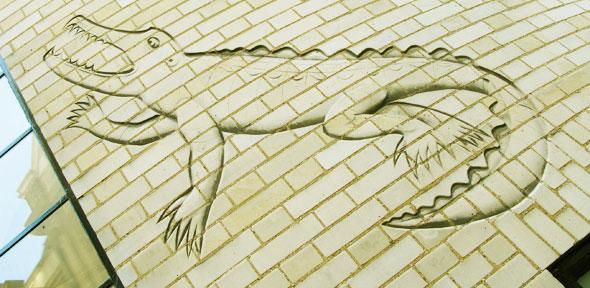
Students in history and philosophy of science and medicine write substantial, focused and independent theses that shape scholarship and engage audiences in many different ways. Contributing to the development of knowledge in the University of Cambridge is a rich and rewarding experience.
Expert guidance
The outstanding international reputation of our teaching staff is a key attraction.
PhD students work closely with a doctoral supervisor and advisor (usually both from the Department of History and Philosophy of Science but sometimes from other departments in the University). With the benefit of this expert guidance, students learn how to articulate, develop and present their own research. Students meet their supervisor and advisor several times a term to discuss an outline, consider research findings or go over a chapter. Consistent review and attentive feedback are integral to the supervisory relationship.
Applicants often find it helpful to contact a potential supervisor before submitting their application.
A thriving research community
Our research community offers invaluable academic and social perspectives.
With around 45 doctoral students, a strong cohort of MPhil and Part III students, postdoctoral researchers and teaching officers, the Department fosters an exceptionally active intellectual life. Thriving seminars, reading groups and workshops provide a focus, allowing students to help set the agenda and present their own work among peers. Students are supported throughout their studies, with close attention paid to methodological development, research skills and career advice.
The Department's Whipple Library is an unparalleled specialist collection for history and philosophy of science and medicine, while other libraries in Cambridge provide access to archival and documentary resources invaluable for research on the sciences. At the heart of the Department is the Whipple Museum , a world-class collection of scientific instruments and models; some students research these objects.
Valuable teaching experience
Cambridge offers PhD students unusually valuable teaching experience through the chance to give supervisions (tutorials) for undergraduates taking History and Philosophy of Science courses. PhD students are paid by the Colleges for this service. The University and the Department provide training in supervising undergraduates.
More about the PhD
For current PhD students
Main image: Crocodile carving by Eric Gill on the Mond Building, where there is work space for HPS PhD students
Email search
Privacy and cookie policies
Study History and Philosophy of Science
Undergraduate study
Library and Museum
Whipple Library
Whipple Museum
Museum Collections Portal
Research projects
History of Medicine
Philosophy of Science
© 2024 University of Cambridge
- Contact the University
- Accessibility
- Freedom of information
- Privacy policy and cookies
- Statement on Modern Slavery
- Terms and conditions
- University A-Z
- Undergraduate
- Postgraduate
- Research news
- About research at Cambridge
- Spotlight on...
We have 21 history of medicine PhD Projects, Programmes & Scholarships
All disciplines
All locations
Institution
All Institutions
All PhD Types
All Funding
history of medicine PhD Projects, Programmes & Scholarships
Study history, classics and archaeology at the university of edinburgh - funding opportunities available, funded phd programme (students worldwide).
Some or all of the PhD opportunities in this programme have funding attached. Applications for this programme are welcome from suitably qualified candidates worldwide. Funding may only be available to a limited set of nationalities and you should read the full programme details for further information.
Humanities Research Programme
Humanities Research Programmes present a range of research opportunities, shaped by a university’s particular expertise, facilities and resources. You will usually identify a suitable topic for your PhD and propose your own project. Additional training and development opportunities may also be offered as part of your programme.
Philosophy PhD (option of joint PhD with National University of Singapore)
Self-funded phd students only.
The PhD opportunities on this programme do not have funding attached. You will need to have your own means of paying fees and living costs and / or seek separate funding from student finance, charities or trusts.
The History of Humanitarian Medicine and non Communicable diseases in African Perspective since 2000
Phd research project.
PhD Research Projects are advertised opportunities to examine a pre-defined topic or answer a stated research question. Some projects may also provide scope for you to propose your own ideas and approaches.
Funded PhD Project (Students Worldwide)
This project has funding attached, subject to eligibility criteria. Applications for the project are welcome from all suitably qualified candidates, but its funding may be restricted to a limited set of nationalities. You should check the project and department details for more information.
History PhD (option of joint PhD with Hong Kong University or National University of Singapore)
Cancer biology: identification of new treatment options for eml4-alk driven lung cancer through understanding mechanisms of cell division and migration..
This project does not have funding attached. You will need to have your own means of paying fees and living costs and / or seek separate funding from student finance, charities or trusts.
PhD candidate - Origin of Obesity and Metabolic Disorders in Childhood (f/m/x)
German phd (option of joint phd with stuttgart or humboldt university), research degrees in the school of history, arts research programme.
Arts Research Programmes present a range of research opportunities, shaped by a university’s particular expertise, facilities and resources. You will usually identify a suitable topic for your PhD and propose your own project. Additional training and development opportunities may also be offered as part of your programme.
Genetics: Investigating the molecular basis of optic nerve degeneration in glaucoma to try and develop a personalized medicine strategy for treatment
Molecular characterisation of post-tuberculous bronchiectasis, english phd (option of joint phd with hong kong/singapore/humboldt berlin), choose from a wide range of doctoral programmes that will take your academic, scientific, and research career further, czech republic phd programme.
A Czech PhD usually takes 3-4 years. You will focus on an independent research project, but may also be required to complete an individual study plan set by your supervisor. At the end of your PhD you will normally complete two oral examinations: one on your subject knowledge, the other on your thesis. Most programmes are offered in Czech, but English-language teaching is becoming more common.
Charles University
Representations of illness and/or disability and/or the national health service in british film and television.
FindAPhD. Copyright 2005-2024 All rights reserved.
Unknown ( change )
Have you got time to answer some quick questions about PhD study?
Select your nearest city
You haven’t completed your profile yet. To get the most out of FindAPhD, finish your profile and receive these benefits:
- Monthly chance to win one of ten £10 Amazon vouchers ; winners will be notified every month.*
- The latest PhD projects delivered straight to your inbox
- Access to our £6,000 scholarship competition
- Weekly newsletter with funding opportunities, research proposal tips and much more
- Early access to our physical and virtual postgraduate study fairs
Or begin browsing FindAPhD.com
or begin browsing FindAPhD.com
*Offer only available for the duration of your active subscription, and subject to change. You MUST claim your prize within 72 hours, if not we will redraw.

Do you want hassle-free information and advice?
Create your FindAPhD account and sign up to our newsletter:
- Find out about funding opportunities and application tips
- Receive weekly advice, student stories and the latest PhD news
- Hear about our upcoming study fairs
- Save your favourite projects, track enquiries and get personalised subject updates

Create your account
Looking to list your PhD opportunities? Log in here .
Filtering Results
Clinical Nutrition
Clinical Nutrition Resources: Online Tools & Resources | Nutrition Services & Appointments | FAQs | Publications |
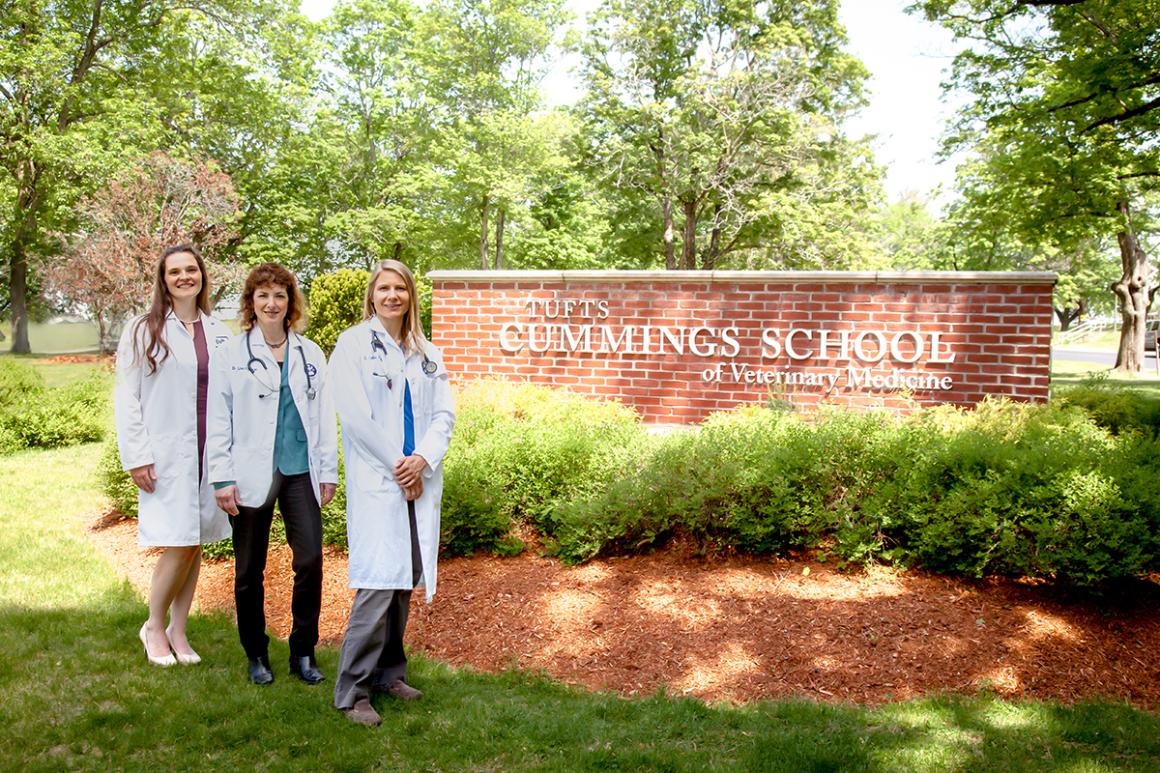
Drs. Freeman and Linder of the Henry and Lois Foster Hospital for Small Animal’s Clinical Nutrition Service help pet owners and their veterinarians incorporate nutrition into their pet’s wellness and treatment plans. The Clinical Nutrition Service has extensive experience in nutritional management of dogs and cats, from healthy animals to those with very complex health concerns.
Board-Certified Veterinary Nutritionists
What does it mean to be a board-certified veterinary nutritionis and why can you trust us to provide accurate, unbiased nutrition information for your pet?

All About Pet Food
Learn about pet food, how to read labels, about supplements, treats and much more.

Pet Nutrition Basics
All animals have basic nutritional needs that must be met for them to live long, healthy lives.

Best Food for Your Pet
Determine the quality of pet foods by learning how to read and understand labels and nutritional information.

Pets with Health Problems
If your pet has heart or kidney disease, is overweight or has other conditions, learn how the right pet food can help.

Tools & Resources
We take the guesswork out of identifying evidence-based websites and tools that you can feel confident using.
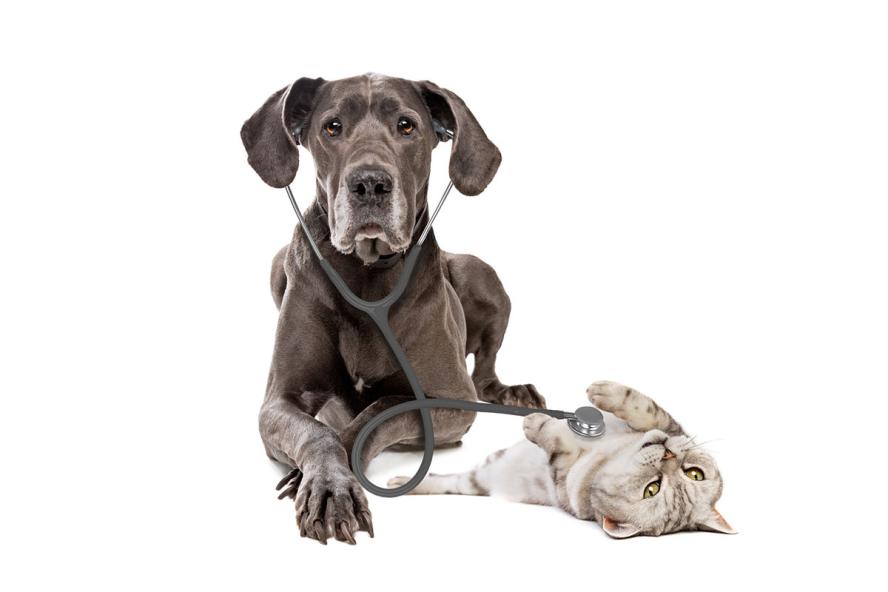
Trending Topics
Visit the petfoodology website, meet our founders.

Lisa Freeman – D.V.M., Ph.D., DACVIM (Nutrition)
Dr. Freeman is a Board Certified Veterinary Nutritionist ® and a professor at Cummings School of Veterinary Medicine at Tufts University. She is on the cutting-edge of science, with hundreds of articles in prestigious journals, speaking engagements at national and international conferences, and awards for her scientific achievements. However, she also is passionate about providing objective and accurate information on pet nutrition to veterinarians, pet owners, and other animal enthusiasts.
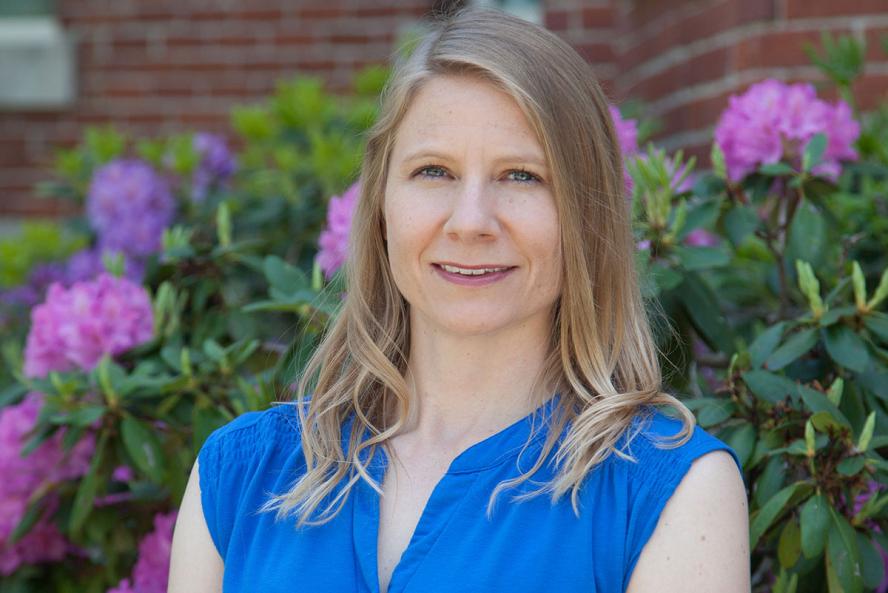
Cailin Heinze – V.M.D., M.S., DACVIM (Nutrition)
Dr. Cailin Heinze is a Board Certified Veterinary Nutritionist ® and the Chief Academic Officer of the Mark Morris Institute, a non-profit organization whose mission is to promote optimal companion animal health by providing educational opportunities for veterinary students and veterinarians in clinical nutrition. She also does some part-time consulting work for Balance IT, a company that makes software and supplements for home-cooked pet diets. Dr. Heinze has been featured in The Washington Post, Eating Well, WebMD, Prevention magazine, and Dog Fancy and she regularly speaks at national and international veterinary conferences.
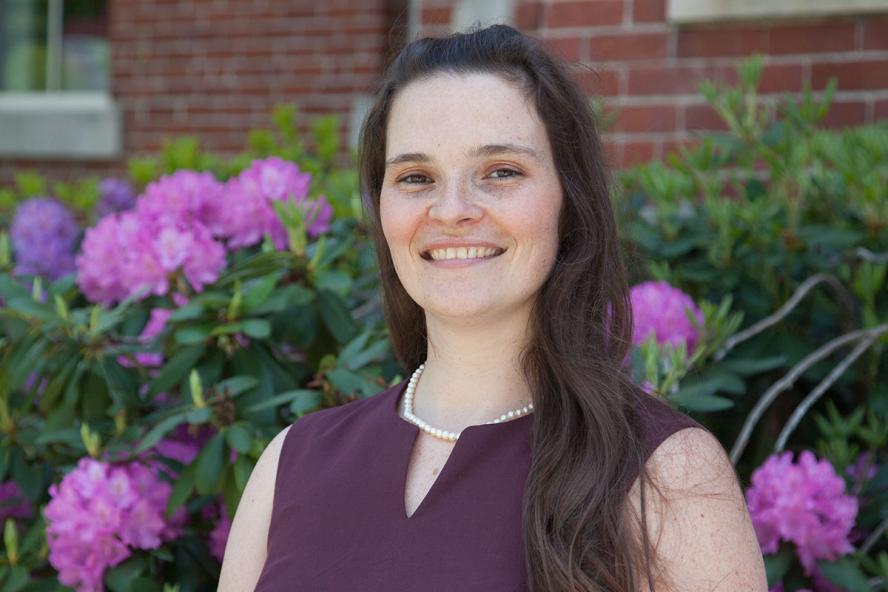
Deborah Linder – D.V.M., M.S., DACVIM (Nutrition)
Dr. Deborah Linder , a Board Certified Veterinary Nutritionist ® , is the head of the Tufts Obesity Clinic for Animals and has had articles appear in Eating Well, the Boston Globe, AARP, SHAPE, and XM Sirius Radio Doctor Channel. She has spoken at national and international conferences and a Capitol Hill briefing, and is an expert in pet obesity, nutrition communication, and in the human-animal bond.
See Nutrition Team Recent Publications
Clinical Nutrition Service 55 Willard Street North Grafton, MA 01536
Phone : 508-839-5395 Ask for the Clinical Nutrition Service liaison


The best of three
Graduating on 3 different occasions over the course of 4 decades, Dr Neil MacGillivray left McEwan Hall with a MBChB in 1964, an MSc in Scottish History in 1999 and a PhD in Scottish History in 2004.
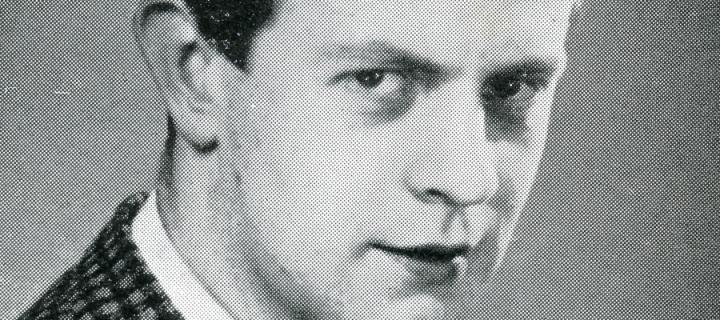
As a medical student in the late fifties Neil recalls that his student life centred around Middle Meadow Walk. The Medical School being on one side, the Royal Infirmary opposite and the former Men’s Union (now Teviot) and ‘The Barbeque’ (now Doctor’s pub) nearby.
Whilst many elements remain the same and Middle Meadow Walk remains a key thoroughfare for today’s medics, the new Royal is a little further away and the NHS shuttle bus is vital.
Digs for £3
Across the other side of the Meadows lies Marchmont, as bustling with students 50 years ago as it is today. In the late 50s, £3 a week secured Neil ‘digs’ on Warrender Park Road where landlady Mrs Carruthers looked after her student tenants with meals and accommodation. From Marchmont Neil travelled to the Royal and the Western as well as many former city hospitals including Elsie Inglis, Bruntsfield and the Eastern.
Neil’s early career in medicine was certainly varied. He trained as an Otolaryngologist, became an expert in parotid surgery, and worked in several UK major cities before sailing around the world as a ship’s surgeon. Back on solid ground he stayed close to the sea working as a consultant ENT surgeon in Blackpool, treating many a ventriloquist, comedian and opera star to whom his skills were career saving.
Doctor of many trades
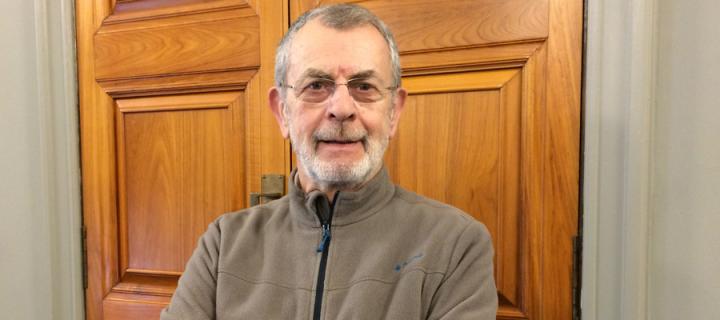
Neil retired from surgery in his late 50s with his sights set on a return to Edinburgh University to study Scottish History. Matriculating in 1998 he was delighted to return to student life beside the Meadows albeit in a different building and a much changed George Square. The Main Library now occupied the space where student accommodation at Cowan House once sat.
Graduating from McEwan Hall became a habit for Neil as he was awarded his MSc in 1999 and PhD in 2004, 40 years after his MBChB . Today the School of History, Classics and Archaeology resides in the Old Medical School and as an Honorary Postdoctoral Fellow Neil often works from there when he isn’t at home on Skye. His involvement in publications and research is ongoing, as is his connection with the Old Medical School building, 57 years after first passing through its doors.
Send us your story
We regularly feature alumni interviews on our website, in the newsletter and in the alumni magazine. We love to share your memories and to find out what happened next. If you have a tale to tell then please get in touch with us at [email protected] .
Related links
The School of History, Classics and Archaeology
The College of Medicine and Veterinary Medicine
Celebrating Academic Excellence: Thesis Prize Winners and Recipients of the Governor General's Academic Gold Medal

The research conducted by our graduate students is not just an academic exercise; it is a vital component of our institution's mission to advance knowledge and address real-world challenges. Graduate research fosters critical thinking, innovation, and the development of new technologies and methodologies. It also plays a crucial role in training the next generation of scholars, leaders, and professionals who will continue to push the boundaries of what is possible.
The thesis prizes winners and recipients of the Governor General's Academic Gold Medal exemplify the highest standards of academic excellence. Their work not only enhances their respective fields but also contributes to the betterment of society.
This year's thesis prize winners have excelled in a diverse array of disciplines, each contributing valuable insights and advancements through their research.
Governor General's Academic Gold Medal
- Dr. Claire Farley , PhD, English Literature, Faculty of Arts, supervised by Robert Stacey and Jennifer Blair
- Dr. Erik Kowalski , PhD, Human Kinetics, Faculty of Health Sciences, supervised by Mario Lamontagne
- Dr. Nicolas Couture , PhD, Physics, Faculty of Science, supervised by Jean-Michel Ménard
In addition to the Governor General's Academic Gold Medal, several other prestigious awards recognize the exceptional research and academic achievements of our graduate students. These scholars have demonstrated remarkable dedication and intellectual brilliance, paving the way for future innovations and discoveries. Their achievements serve as a testament to the transformative power of education and research, and we look forward to witnessing their continued impact in the years to come .
Pierre Laberge Prize
- Dr. Geneviève Gendreau-Beauchamp , PhD, Sociology, Faculty of Social Sciences, supervised by Stéphane Vibert
- Dr. Hossein Davarinejad , PhD, Biochemistry, Faculty of Medicine, supervised by Jean-François Couture
Joseph De Koninck Prize
- Dr. Emmanuelle Larocque , PhD, Social Work, Faculty of Social Sciences, supervised by Nicolas Moreau
- Sarah Watt MSc, Chemistry, Faculty of Science, supervised Jeffrey W. Keillor
Commission on Graduate Studies Prize
- Leigh-Ann Burtler , M, Information Studies, Faculty of Arts, supervised by Stefanie Haustein
- Alexandra Goudreau , MSc, Human Kinetics, Faculty of Health Sciences, supervised by Kristi B. Adamo
René Lupien Prize
- Stéphanie Bourque , MA, History, Faculty of Arts, supervised by Michel Bock
International Graduate Thesis Prize
- Mackendy Alcius Gaty , MA, Sociology, Faculty of Social Sciences, supervised by Brieg Capitaine
Congratulations to all winners! We extend our gratitude to the thesis supervisors who guide and mentor our graduate students throughout their academic journeys.

Meet the 2023-2024 Faculty of Engineering award recipients

GSPIA announces winners of "GSPIA Imagination" Scholarship
By continuing to browse the site you are agreeing to our use of cookies and similar tracking technologies described in our privacy policy .
Voice of the Discipline
News and publications.
Access AHA news and publications supporting the work of historians.
Stay up-to-date with the AHA

June 25, 2024
AHA Members Co-author Article on SCOTUS and Gun Control
AHA members Holly Brewer (Univ. of Maryland) and Laura F. Edwards (Princeton Univ.) have co-authored an article for Washington Monthly…

June 24, 2024
Action Alert Opposing Ohio SB 83

June 21, 2024
AHA Signs On to CIE Letter Urging HEA-Title VI Funding for FY 2025

June 18, 2024
Welcome to the AHA’s New Website
The American Historical Review is the flagship journal of the AHA and the journal of record for the historical discipline in the United States, bringing together scholarship from every major field of historical study.
Perspectives on History is the newsmagazine of the AHA and is the principal source for news and information about the discipline of history. Since 1962, Perspectives has promoted our work by publishing articles and commentary on all aspects of the historical discipline.
History in Focus Podcast

Environmental Crisis and Recovery
Collaborative history + revisiting marion thompson wright, aha booklets.
The AHA publishes booklets that address a diversity of topics to serve the needs of history students and historians in all professions. Our publications include career advice for history graduates, overviews and syntheses of current historical topics and fields, and guides to teaching and learning in history.
For the Press
The AHA is pleased to provide resources for journalists and press. If you are a member of the media and would like to submit a request for a referral or interview, please email [email protected] . Please provide any pertinent deadlines and we will do our best to accommodate your request. The AHA can find you a historian for any topic, and assists with dozens of inquiries each year.
The AHA encourages the reading of history with periodic reading challenges.
Permission to Use AHA Copyrighted Material
All material published by the American Historical Association in any medium is protected by copyright.
Join the AHA
The AHA brings together historians from all specializations and all work contexts, embracing the breadth and variety of activity in history today.















































IMAGES
VIDEO
COMMENTS
Welcome to the Doctoral Program in the History of Science, Medicine, and Technology. Our Doctoral Program attracts a strong cohort of students from diverse backgrounds, including medicine, science, and history. Our PhD program prepares them for scholarly careers in teaching, research, and policy. The program is sponsored by two departments and ...
The principal requirement for the PhD degree in the history of medicine is the writing of a dissertation based upon original research and of publishable quality. Prior to embarking on full-time dissertation research, candidates will prepare themselves by a variety of courses, seminars, and guided reading. ...
Yale University offers an interdepartmental Program in the History of Medicine and Science leading to the M.A., Ph.D., J.D./Ph.D., or M.D./Ph.D degrees. The Program's full-time faculty are members of the Department of History in the Faculty of Arts and Sciences and of the Section of History of Medicine in the School of Medicine.
The Bulletin of the History of Medicine is the official publication of the Johns Hopkins Institute of the History of Medicine and the American Association for the History of Medicine (AAHM) and is published by The Johns Hopkins University Press.A leading journal in its field for more than three quarters of a century, the Bulletin spans the social, cultural, and scientific aspects of the ...
Frank Blibo. Research Interests: History of medicine and science in and beyond Europe and America; history of chronic diseases such as heart diseases, neurological disorders and cancers, of therapeutics such as cardiology, cardiac surgery, and coronary revascularization, of neurology and neurosurgery, of specialty training and education, of ...
The application deadline for History of Medicine is December 15, but applicants are advised to send in the main application materials by December 8. We do not require GRE scores for admission. History of Medicine - Online Application. For more information, please contact: Prof. Ahmed Ragab, Graduate Coordinator. Department of History of Medicine.
The Section of the History of Medicine is a freestanding unit in the Yale University School of Medicine engaged with research and teaching in the history of medicine, the life sciences, and public health. In addition to instruction for medical students, including mentoring M.D. theses, the faculty collaborates with colleagues in the History ...
The Department of the History of Medicine is the oldest such academic department in North America. We are dedicated to scholarship in the history of medicine, disease and the health sciences, and their relation to society. The Department seeks to bring historical perspectives to bear on contemporary health issues. Faculty members conduct ...
The Program in the History of Medicine has been dedicated to research and teaching in the history of disease, healthcare, and medical science. Founded in 1967, the Program is located in the Medical School and the Department of Surgery. The Program gives students a historical perspective on the role of health, medicine, and disease in society today.
The Program in the History of Science and Medicine (HSHM) is a semi-autonomous graduate track within the Department of History. HSHM students receive degrees in History, with a concentration in the History of Science and Medicine. There is a separate admissions process for students interested in the History of Science and Medicine. For more information, please see the HSHM website.
The Harvard Program in the History of Medicine is an inter-faculty program jointly sponsored by the Harvard Medical School and the Faculty of Arts and Sciences (FAS). At Harvard Medical School, teaching and research is based in the Department of Global Health and Social Medicine. At FAS, the Program is based in the Department of the History of Science, a department offering undergraduate ...
Six-week courses on various topics in the history of medicine, taught by program faculty for the Cedars-Sinai community and other interested students. Opportunities for residents, fellows and faculty to engage in historical research under the mentorship of program faculty. The Program in the History of Medicine is affiliated with the Graduate ...
The Graduate Program in the History of Science & Medicine is a semi-autonomous graduate track within the Department of History. The program's students are awarded degrees in History, with a concentration in the History of Science and Medicine. Fields of study include all subjects and periods in the history of science and history of medicine, especially the modern era.
Amalie Moses Kass Professor of the History of Medicine. ON LEAVE FALL 2023 / SPRING 2024. Areas of Research: Global Health / Public Health, History of Medicine, Medical Humanities, Science Policy... Read more. Faculty Assistant: Ellen Guarente. [email protected]. p: (617) 495-3532.
The Department of the History of Medicine trains PhDs in the history of medicine, and teaches in the schools of medicine and public health. We offer courses for undergraduates and graduate students on the main arts and sciences campus of Johns Hopkins University. The intellectual life of the Department is rich and exciting.
The Department of History and Philosophy of Science is a major centre for research, teaching and public engagement in history of medicine. The distinctive feature of our programme is that medical historians work in the largest and most distinguished department of history and philosophy of science in the UK. So students and researchers can both ...
Students in the History of Science, Medicine, and Technology degree program who wish to pursue a joint PhD (one degree, two majors) with another degree program must first be admitted to the other degree program. The proposal for the degree must be approved by the Department of History's Graduate Council before it is submitted to the Graduate ...
The History of Health Sciences (HHS) program trains students to examine the history of health sciences - medicine, nursing, pharmacy, public health, alternative healing, and biomedical research - from a variety of critical approaches. ... The PhD program is a five-year degree that is composed of two years of coursework and a three-year ...
PhD in History and Philosophy of Science. Students in history and philosophy of science and medicine write substantial, focused and independent theses that shape scholarship and engage audiences in many different ways. Contributing to the development of knowledge in the University of Cambridge is a rich and rewarding experience.
The History of Humanitarian Medicine and non Communicable diseases in African Perspective since 2000. The University of Manchester Faculty of Humanities Doctoral Academy, School of Arts, Languages and Cultures. This PhD thesis will join the Developing Humanitarian Medicine team at the Humanitarian and Conflict Response Institute.
Department of the History of Medicine 1900 East Monument Street Baltimore, MD 21205-2113. Graduate Program: Dr. Graham Mooney Director of Graduate Studies [email protected]. Historical Collection: Michael Seminara Curator 410-955-3159 [email protected]. General Inquiries: Maggie Cogswell Administrative Manager 410-955-3178 maggiecogswell ...
Dr. Cailin Heinze is a Board Certified Veterinary Nutritionist ® and the Chief Academic Officer of the Mark Morris Institute, a non-profit organization whose mission is to promote optimal companion animal health by providing educational opportunities for veterinary students and veterinarians in clinical nutrition. She also does some part-time consulting work for Balance IT, a company that ...
Graduating from McEwan Hall became a habit for Neil as he was awarded his MSc in 1999 and PhD in 2004, 40 years after his MBChB. Today the School of History, Classics and Archaeology resides in the Old Medical School and as an Honorary Postdoctoral Fellow Neil often works from there when he isn't at home on Skye.
Department of the History of Medicine 1900 East Monument Street Baltimore, MD 21205-2113. Graduate Program: Dr. Graham Mooney Director of Graduate Studies [email protected]. Historical Collection: Michael Seminara Curator 410-955-3159 [email protected]. General Inquiries: Maggie Cogswell Administrative Manager 410-955-3178 maggiecogswell ...
The research conducted by our graduate students is not just an academic exercise; it is a vital component of our institution's mission to advance knowledge and address real-world challenges. Graduate research fosters critical thinking, innovation, and the development of new technologies and methodologies. It also plays a crucial role in training the next generation of scholars, leaders, and ...
Stay up-to-date with the AHA View All News The American Historical Review is the flagship journal of the AHA and the journal of record for the historical discipline in the United States, bringing together scholarship from every major field of historical study. Learn More Perspectives on History is the newsmagazine…
Department of the History of Medicine 1900 East Monument Street Baltimore, MD 21205-2113. Graduate Program: Dr. Graham Mooney Director of Graduate Studies [email protected]. Historical Collection: Michael Seminara Curator 410-955-3159 [email protected]. General Inquiries: Maggie Cogswell Administrative Manager 410-955-3178 maggiecogswell ...